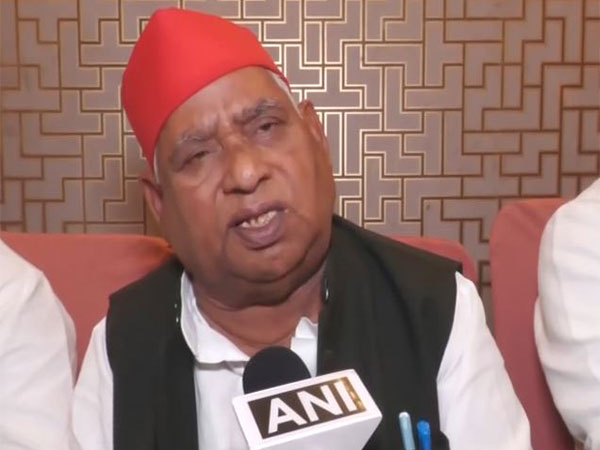Lucknow (Uttar Pradesh) [India]: Awadesh Prasad, Samajwadi Party MP from Faizabad Lok Sabha constituency, has criticized the central government for its push towards implementing the ‘One Nation, One Election’ initiative. He accused the government of using the proposal to divert public attention from pressing issues like farmers’ struggles, unemployment, and inflation.
Prasad raised doubts about the Election Commission’s capability to manage simultaneous elections nationwide, citing delays in Uttar Pradesh by-elections as an example. “By-elections were to be held on 10 seats in Uttar Pradesh, but elections were conducted in only 9… If they cannot conduct a by-election for the Milkipur seat, how will they manage elections for the entire country? This is an attempt to avoid addressing farmers’ issues, unemployment, inflation, and their failures. This idea is impossible,” he said.
The Election Commission had rescheduled the Uttar Pradesh by-elections from November 13 to November 20 for nine seats, leaving one seat unresolved.
Prasad’s remarks came following the announcement of a Joint Parliamentary Committee (JPC) meeting on the ‘One Nation, One Election’ proposal, scheduled for January 8.
Congress leader Salman Khurshid also expressed skepticism, noting the complexity of implementing the proposal. “It is not an easy task. When the parliamentary committee meets, all the issues will be placed before it for discussion,” Khurshid said.
The bill, introduced in the Lok Sabha, seeks to align elections for the Lok Sabha and state assemblies across India. It has been referred to a 31-member Joint Parliamentary Committee for detailed deliberations. The committee includes 21 Lok Sabha members, such as Congress leaders Priyanka Gandhi Vadra and Manish Tewari, NCP’s Supriya Sule, TMC’s Kalyan Banerjee, and BJP’s PP Chaudhary, Bansuri Swaraj, and Anurag Singh Thakur. Ten members from the Rajya Sabha are also part of the panel.
Opposition leaders have voiced concerns over the proposed changes, arguing that it could disproportionately benefit the ruling party by consolidating its influence over the electoral process and diminishing the autonomy of regional parties.


